An artificial intelligence firm hired to work on the Vote Leave campaign may analyse social media data, utility bills and credit rating scor...

We deliver daily unique breaking viral high technolgies news

An artificial intelligence firm hired to work on the Vote Leave campaign may analyse social media data, utility bills and credit rating scor...

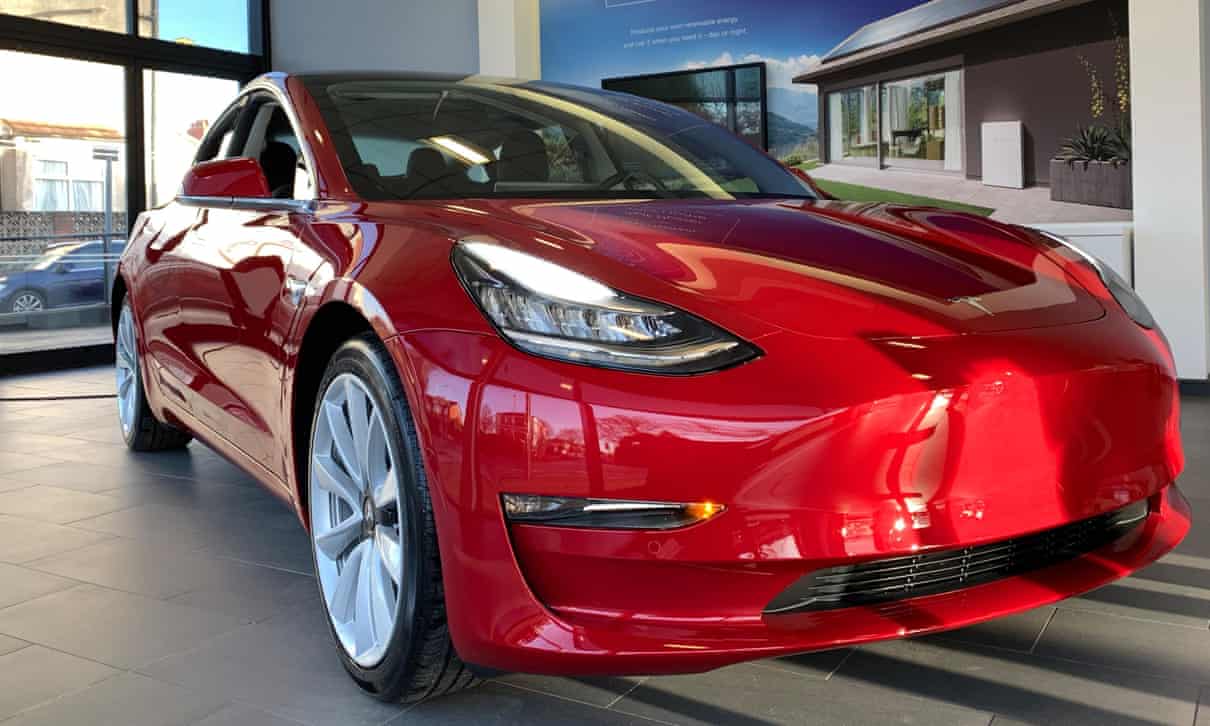
Electric and hybrid cars gained traction among European buyers in April despite coronavirus lockdowns stalling the market, suggesting carmakers are likely to avoid potential fines potentially worth billions of euros if they fail to reduce average emissions.
Battery electric vehicles and plug-in hybrid cars accounted for 17% of sales across all European markets, including the UK, in April, according to data collated by industry analysts Jato Dynamics. That was more than double the 7% market share achieved in April 2019.The data show buyers were more likely to opt for electric and hybrid cars even as overall sales fell dramatically. Total car sales, including petrol and diesel models, fell from 1.34m units in April 2019 to 292,600 vehicles in April 2020, the lowest level since the 1970s, Jato said.Sales of battery electric cars fell by 29% during the month compared with the previous year, but performed far stronger than the 78% decline seen across the market as a whole as sales of petrol and diesel cars decreased much faster.Sales of plug-in hybrid cars rose by 7% according to Jato. Volkswagen, Volvo and Ford all benefited from strong growth in sales of plug-in hybrids.The data suggests that – if the market share gains are sustained as showrooms in the UK and Europe reopen – carmakers are making progress towards meeting emissions reductions targets that came into force at the start of the year. The targets are based on average emissions of all cars sold in the EU and the UK in 2020 and 2021.Felipe Munoz, an analyst at Jato, said: "EVs were already driving part of the small growth that remained in 2019. This year, as governments have acted quickly to protect their people and economies, EVs have gained even more traction and visibility due to incentives."However, the increase in plug-in hybrid sales appears to corroborate analyst predictions that hitting the targets would be achieved largely through sales of cars that still emit large amounts of carbon dioxide in many cases.Carmakers are pushing for the EU and the UK to introduce further subsidies to support the car industry. The industry employs 13.8 million people across Europe, according to the European Automobile Manufacturers' Association.The carmakers are pushing for subsidies to apply to fossil-fuelled cars as well as electric vehicles, which has drawn protests from environmental campaigners and politicians who want electric models to be prioritised as consumers are encouraged to avoid public transport for health reasons.
Electric and hybrid cars gained traction among European buyers in April despite coronavirus lockdowns stalling the market, suggesting carma...

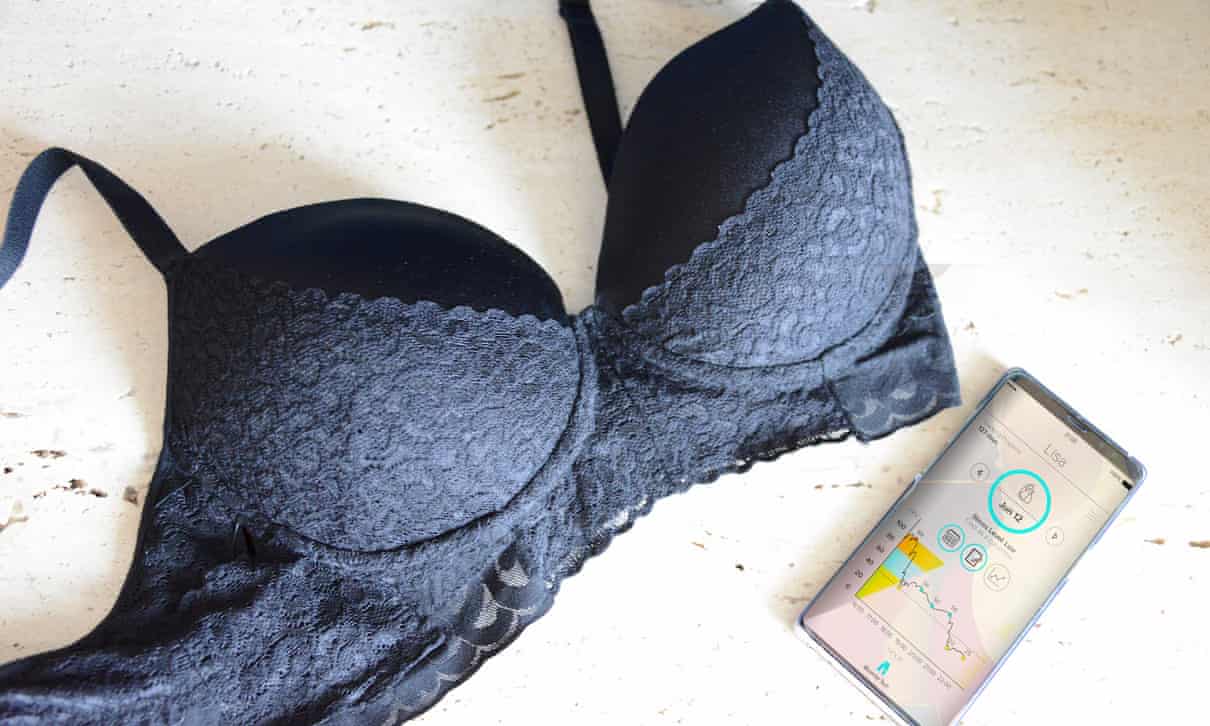
If you're asked to imagine a person who has a heart attack, who do you see? Most of us think of an old man.
It's what we tend to see in movies. And while 3.9 million men live with cardiovascular disease in the UK, according to the British Heart Foundation, 3.5 million women also have a heart condition. However, we know much less about how to spot cardiovascular health issues in women. This means women wait longer to seek medical help, and are only half as likely as men to receive recommended heart-attack treatments.It was only in 1993 that women and people of colour were officially included in US clinical trials, yet much of our current medical knowledge has been shaped by earlier research. But over the past two decades, scientists have laid bare our need to know more about a wider range of bodies. As data is slowly catching up with reality, could technology help to plug the gap?"There is a lot of latent bias," says Alicia Chong Rodriguez, founder and CEO of early-stage startup, Bloomer Tech, who trained as an engineer before focusing on health tech. "We're unaware about the differences of women's symptoms, and there are adverse treatment outcomes. I really wanted to solve this using technology."She met her co-founders, Aceil Halaby and Monica Abarca, at the Massachusetts Institute of Technology. Bloomer Tech is named after the 19th-century women's rights activist Amelia Bloomer who campaigned against corsets. Bloomer Tech embeds medical sensors in "smart bras" to collect data on cardiovascular health."Medical devices can be cumbersome and annoying," says Chong Rodriguez, so the Bloomer bra comes with lace and playful straps. "We transformed a typical medical device into everyday medical-grade garments that women will actually want to wear."This March, they raised $3m (£2.5m) in seed funding and plan to scale the manufacturing of their prototype for further tests. Based in Cambridge, Massachusetts, Bloomer Tech has a handful of full-time employees and the team is growing.As their inspiration, the founders credit the wider movement of cardiologists in the US and across the world, who have provided decades of evidence-based research – showing that physiological differences between the sexes demand more women-centric solutions.It's a novel approach. After all, most technology is still designed by men, for men. For instance, smartphones that don't fit into women's smaller hands. Such design and development oversights can adversely affect women's health and safety. Famously, seatbelts weren't designed for women.Christina Friis Blach Petersen is co-founder of health tech startup LYS Technologies. Its products focus on light and its impact on health: "I think people are very focused on what they eat and exercise, but light is so essential to life on the planet it's been neglected in the health calculation," she says.Her interest was sparked by research that suggested nurses who work night shifts at hospital – and are therefore more exposed to blue light – have higher rates of breast cancer, diabetes and cardiovascular disease.Moving from Denmark to the UK, she enrolled in a master's programme on innovation design engineering at Imperial College, where she met her co-founder Hugo Starrsjo. The duo set up a Kickstarter campaign, raising £55,978, and launched their startup in London in 2016. Their product is a button, the size of a £2 coin. It's a wearable light-tracking device that helps people monitor the kind of light they're exposed to throughout the day.When it comes to our light intake, intensity, colour, timing and duration matter. "You have to avoid blue light at night before bed because blue light suppresses melatonin, your natural sleep hormone," says Friis Blach Petersen. Most offices are too dark, "they're telling you to go to sleep in terms of what light you're getting". The result is circadian rhythm disruption. This, in turn, has been linked to illnesses in the long-term, while affecting our sleep and energy levels in the short run.How did they go about designing wearable tech that would suit both men and women? "I feel the problem with men designing for women, is they think: 'We'll just make it pink and fluffy,'" she says. "I really thought about how we could make it minimalistic and Scandinavian and fit it into a modern lifestyle."Echoing the data disparity found in cardiovascular health, she says: "A lot of the research done in academia with circadian rhythms is done with 25-year-old men, sitting in a lab with a spectrometer on their heads." But we know that women typically need more light than men."This huge gap in medical data for women offers a lot of opportunities for tech startups," she says. Marija Butkovic, a lawyer from Croatia who moved to London in 2016, is the founder and CEO of Women of Wearables. It started out as a small get-together to connect women who worked in wearable tech, but has now turned into a global community with more than 20,000 members in 30 countries."When it comes to women's health, there are business opportunities in any area you choose", she says, as long as you find good data. What's more, women make 80% of healthcare decisions in the US in the home, according to the US Department of Labor. "There's 50% of us on this planet, we cannot be niche."At the same time, female-only startups still only received less than 3% of venture capital in the US, according to PitchBook. Similarly, 83% of venture capital deals in the UK went to all-male teams in 2017.While female founders deserve more funding, it's also clear that the issue of gender bias in medicine requires a larger societal shift. "We really need to approach this challenge in a holistic way," says Butkovic. Researchers, investors, corporates, and pharma companies need to get on board. Because, as she notes: "These problems and challenges cannot be solved only by innovative startups."
If you're asked to imagine a person who has a heart attack, who do you see? Most of us think of an old man. It's what we tend to s...

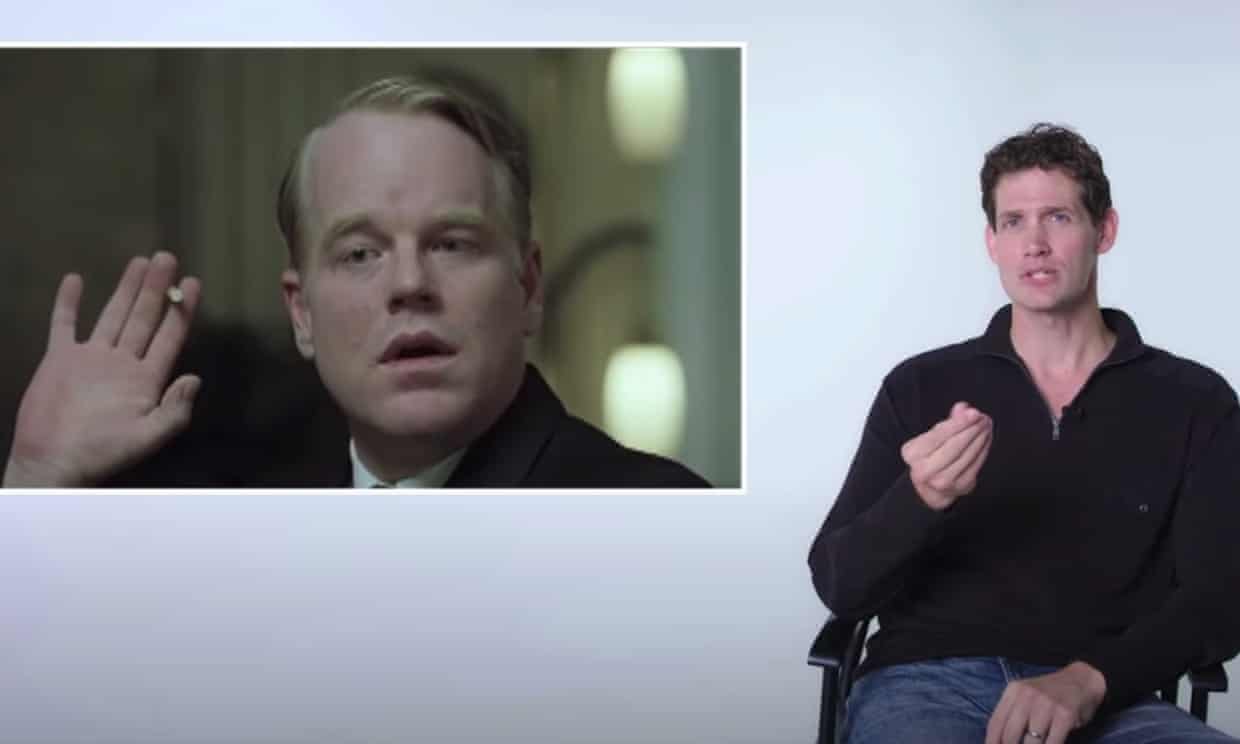
To put on an accent is to invite criticism.
We all remember those performances in which an actor has taken a flying leap at mimicking a linguistic form that is not their own and either nailed it, or sailed so far off the side of the balance beam they've landed on a broken ankle. In the former camp, in my books: Kate Winslet in The Dressmaker (it's like she was born in Australia!) and Ben Schnetzer in Pride (he's not from Northern Ireland?!). In the latter camp, well, you should hear my "Anthony Newley's 'Oirish' accent in Doctor Dolittle" impression. That's why when Wired teamed up with the dialect coach Eric Singer for Technique Critique, a 2016 video essay in which Singer assessed the performances of 32 actors doing accents, it was like Christmas for me. Singer, a curt but engaging expert, walks us through what makes certain performances either soar or sink: Kate Winslet's open and theatrical "oral posture" (how much she opens her jaw while speaking) means her Polish accent in Jobs doesn't quite get there; Jake Gyllenhaal "nails" his Wyoming accent in Brokeback Mountain by pushing the vowel sounds back in his mouth. I've watched every single episode of Real Housewives of Beverly Hills in lockdown Read more As an autistic person, so much of my life has been built around masking – in essence, seeming "normal" – by copying turns of phrase, pronunciations and idiolects from popular screen media, so Singer's accidental how-to guide delighted a part of me I've only recently begun to understand. I also love to find out how things work, occasionally by taking them apart and tinkering with them, so discovering the linguistic moving parts of accents and speech has really hit all my special interests at once. The video essay was such a hit that Singer returned for many more – including ones taking in actors playing real-life characters, and "conlangs", the fictional languages spoken in fantasy and science fiction works – and jazzed millions of viewers about linguistic notions like the uvular africates in Klingon or the Ugandan vowel sounds Forest Whitaker used to embody Idi Amin in The Last King Of Scotland. Facebook Twitter Pinterest Indeed, so popular were Singer's critiques that the series has now expanded to involve dozens of other experts, from the crime scene analyst and investigator Matthew Steiner examining the forensics in crime scenes from movies and TV shows, to the former CIA chief of disguise Jonna Mendez waxing lyrical about Megan Fox's quick-change in Teenage Mutant Ninja Turtles and offering the immortal aside "here you have Ben Affleck playing my husband" about Tony Mendez in Argo. And, as a 37-year-old non-driver who still harbours fantasies of becoming a late-blooming stunt person, the US rally champ Wyatt Knox's breakdown of hair-raising driving scenes was a must see. There's nothing we as human beings like more, to our secret shame, than squashing down our stifled dreams and existential terror by pretending we're experts in, say, how to give the impression you were born somewhere you weren't. "Well, I definitely would have done it differently," we scoff. For those of us who once went to drama school or harboured Oscar-winning fantasies in the shower, it's our equivalent of the "she's got no bodyflight" moment from Strictly Ballroom: au contraire, fate, we are the experts here! A "new video" notification from the channel is always a cue to glue myself to the laptop, and I hope that Wired continues to diversify not just the topics but the chosen experts, too (so far, the lineup has been very white). Derry Girls: criminally underrated Irish sitcom fuses hilarity with political heft Read more But what's fascinating about Technique Critique is how often our strongly held dinner party opinions are obliterated by the actual experts: that accent you thought was hokey is actually a spot-on masterpiece of regional oral posture; the hacking scene that seemed like something out of an airport potboiler is actually true to life. We live in an age of increased access to false information where all voices are encouraged to "join the conversation"; as the writer and former Man Booker prize judge Rick Gekoski put it some years ago, "the notion that some opinions are better than others – fairer, deeper and more cogent – seems to be slipping from our grasp". There's something so reassuring – essential, maybe even thrilling – about expert opinions being given the spotlight in the manner they are in Technique Critique. And, but, despite this, I will die on this hill: Anthony Newley's Irish accent in Doctor Dolittle is worse than Dick Van Dyke's Cockney one in Mary Poppins. Thank you and goodnight. Topics Culture Stream team TV streaming YouTube Television reviews Share on Facebook Share on Twitter Share via Email Share on LinkedIn Share on Pinterest Share on WhatsApp Share on Messenger Reuse this content
To put on an accent is to invite criticism. We all remember those performances in which an actor has taken a flying leap at mimicking a ...

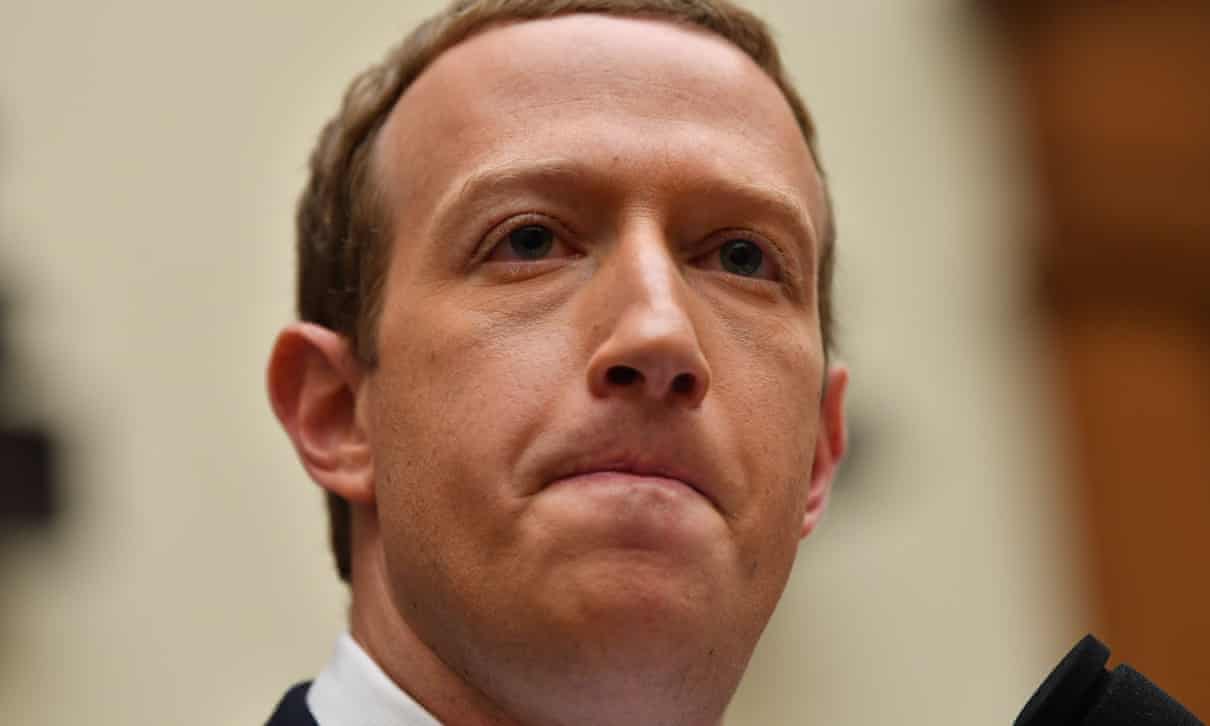
Civil rights leaders have criticised Mark Zuckerberg's decision to take no action against a Facebook post from Donald Trump appearing to threaten to start shooting "looters", after a Monday night meeting with the company's executives ended in acrimony.
"We are disappointed and stunned by Mark's incomprehensible explanations for allowing the Trump posts to remain up," Vanita Gupta, Sherrilyn Ifill and Rashad Robison said in a statement."He did not demonstrate understanding of historic or modern-day voter suppression and he refuses to acknowledge how Facebook is facilitating Trump's call for violence against protesters."Mark is setting a very dangerous precedent for other voices who would say similar harmful things on Facebook."The three activist leaders – the heads of the Leadership Conference on Civil and Human Rights, the NAACP Legal Defense and Educational Fund, and Color of Change – met Zuckerberg, the CEO of Facebook, and its chief operating officer, Sheryl Sandberg, on Monday night. They discussed Trump's Thursday night post, which urged the military to intervene in Minneapolis with the words "when the looting starts, the shooting starts".The message, originally sent by Trump as a tweet before being cross-posted to Facebook, was restricted on Twitter after the platform decided it broke rules about glorifying violence. On Facebook, Zuckerberg personally intervened to leave the message up, arguing that the company has a policy to allow warnings of the use of force by state actors.Zuckerberg's decision led to a "virtual walkout" of Facebook staff on Monday, with hundreds of employees downing tools in protest. A number of Facebook employees publicly expressed their dissent on rival social networks such as Twitter, and were quickly supported by senior managers at the company.At least one employee has quit over the decision. Timothy J Aveni, a software engineer who worked on misinformation, said on Facebook that he had resigned on Monday. "Mark told us that he would draw the line at speech that calls for violence," Aveni wrote. "He showed us on Friday that was a lie ... Facebook, complicit in the propagation of weaponized hatred, is on the wrong side of history."A Facebook spokesperson told the Guardian: "We recognise the pain many of our people are feeling right now, especially our black community. We encourage employees to speak openly when they disagree with leadership." The company would not require walkout participants to take paid time off, Facebook said. On Monday night, fresh detail about those internal discussions emerged, after the Verge obtained recordings of Zuckerberg speaking at an internal meeting on Friday night."How to handle this post from the president has been very tough," said Zuckerberg. "It's been something that I've been struggling with basically all day, ever since I woke up … This has been personally pretty wrenching for me."My first reaction [to Trump's post] was just disgust," he added. "This is not how I think we want our leaders to show up during this time. This is a moment that calls for unity and calmness and empathy for people who are struggling."Zuckerberg also told employees Facebook would review the policies that allowed Trump's post to stay up. "There is a real question coming out of this, which is whether we want to evolve our policy around the discussion of state use of force. Over the coming days, as the National Guard is now deployed, probably the largest one that I would worry about would be excessive use of police or military force. I think there's a good argument that there should be more bounds around the discussion around that."The Facebook walkout was followed by sanctioned events at other technology companies. A number of YouTube executives, including the company's chief business officer and its global head of music, told their teams they could take Tuesday off to participate in the protests, according to the Information.On Tuesday morning, Spotify followed suit, encouraging employees to join the day of action "by taking time to reflect and educate themselves".The decision on whether to allow Trump's posts to remain on Facebook could be one of the final major calls made solely by Zuckerberg. The company recently confirmed the creation of an independent Oversight Board of academics, politicians and former journalists from around the world who will act as as a "supreme court" deciding what content should be allowed on Facebook, while providing guidance on policy.Members of the Oversight Board met on Tuesday afternoon and discussed the issue but the organisation is reluctant to start wading in to debates before it is up-and-running. It is due to be fully functional by the autumn - towards the end of the current US presidential election campaign.Members declined to give any detail what was discussed on Tuesday, although a spokesperson for the Oversight Board suggested Trump's posts are the sort of issue they will rule on in the future: "There are many significant issues relating to online content that we recognise people want the board to consider. We're working hard to set the board up to begin operating later this year so it can start considering cases referred by users and Facebook. We will make decisions without regard to Facebook's economic, political or reputational interests, in a fair, transparent and politically neutral manner."Twitter's decision to restrict the Trump tweet – which was followed by a Trump executive order aimed at reducing the platform's protections against civil claims – won the backing of the European commission.The EU executive branch's vice-president, Věra Jourová, said in her response to the dispute that politicians should answer "criticism with facts, not with threats and attacks"."I support Twitter in their efforts to develop and implement a transparent, clear and consistent moderation policy," Jourová said. "This is not about censorship. This is about flagging verifiably false or misleading information that may cause public harm, linking to reliable information, or flagging content violating their policies."Additional reporting by Daniel Boffey in Brussels
Civil rights leaders have criticised Mark Zuckerberg's decision to take no action against a Facebook post from Donald Trump appearing t...

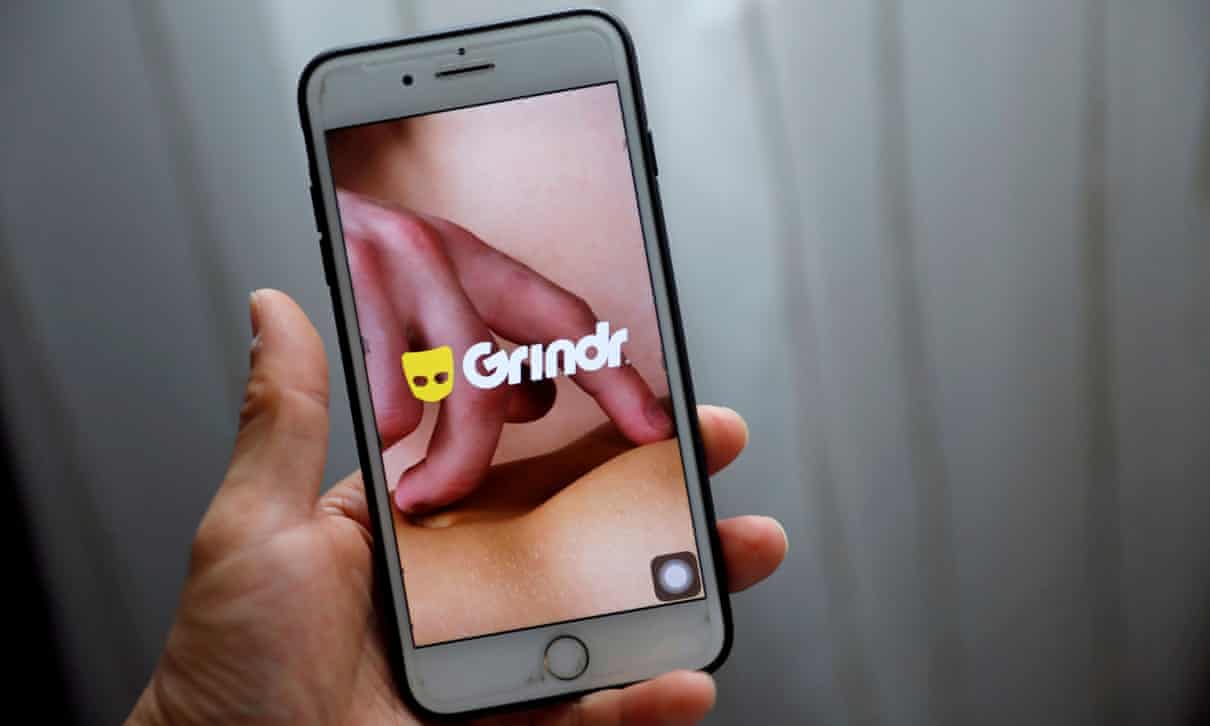
Grindr is removing an "ethnicity filter" from its dating app as part of its support for the Black Lives Matter movement, the company announced on Monday.
The controversial feature, limited to those who stump up £12.99 a month for the premium version of the app, allows users to sort search results based on reported ethnicity, height, weight and other characteristics.In a statement posted to Instagram, the company said "We stand in solidarity with the #BlackLivesMatter movement and the hundreds of thousands of queer people of color who log in to our app every day."We will continue to fight racism on Grindr, both through dialogue with our community and a zero-tolerance policy for racism and hate speech on our platform. As part of this commitment, and based on your feedback, we have decided to remove the ethnicity filter from our next release."Grindr's filter had come under intense criticism over the weekend after a now-deleted tweet from the company that read "Demand Justice. #blacklivesmatter". Many condemned the company's show of solidarity as hollow when taken alongside the existence of a feature that allows users to explicitly discriminate based on race.The company has long maintained that the ethnicity filter was useful for minority users who wanted to find people like themselves, rather than enforce racism."We decided before we were ready to pull the plug on that, it was a conversation we wanted with our user base," Grindr's head of communications told the Guardian in 2018. "While I believe the ethnicity filter does promote racist behaviour in the app, other minority groups use the filter because they want to quickly find other members of their minority community."Grindr isn't the only dating app which allows users to filter by race, but it is by far the most prominent. Racial discrimination on the app isn't simply enforced algorithmically, either; a 2015 study of Australian users found that 96% had seen at least one profile that included some form of racial discrimination, 'through language such as "Not attracted to Asians."' One in eight of those surveyed admitted they themselves included such language.The announcement came on the first day of Pride month, Grindr noted. "We can still come together in the spirit of Pride, but Pride this year has an added responsibility, a shifted tone, and a new priority that will be reflected in our programming – support and solidarity for queer people of color and the #BlackLivesMatter movement."
Grindr is removing an "ethnicity filter" from its dating app as part of its support for the Black Lives Matter movement, the comp...

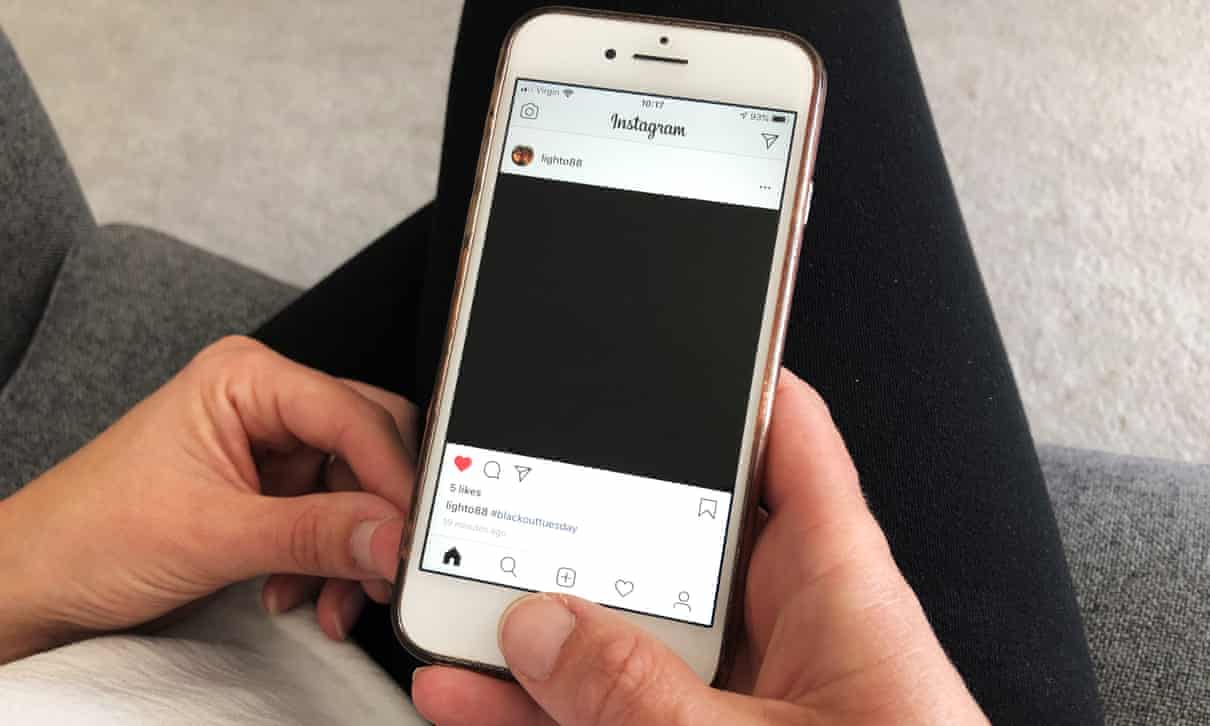
The protest movement sparked by the death in police custody of George Floyd in Minneapolis spread from the music business to social media on Tuesday as major institutions around the world posted black squares and stopped online activity in solidarity.
The #BlackoutTuesday hashtag dominated social media, as musicians, actors, major museums, social media companies and ordinary users all took part. But the hashtag was criticised by some for being reductive.Black squares replaced the usual barrage of colourful posts and paid-for ads on Instagram, but some refused to take part, calling the move, which started with the music industry, a "major label record executive white guilt day", and called for people to share anti-racist literature and films instead of remaining silent.Others, including UK rapper Awate, said the move was undemocratic and enforced on artists. He tweeted: "Instead of this performance, we should find a way to unionise and innovate methods of supporting the struggles of our people under attack. Capitalism got us here. Let's try a collective approach."Ariana Grande, one of the most popular Instagram users with 189 million followers, posted a black square with links to Black Lives Matter accounts, with the caption: "Sending strength and if you are protesting today please be safe." Dwayne "The Rock" Johnson, who has 185 million followers, simply posted a black square with the hashtags #normalizeequality and #blackouttuesday.People taking part were reminded to not use the Black Lives Matter hashtag as protesters in the US, and worldwide, are using it to organise future protests and share information.The artist Toyin Ojih Odutola, who was due to show at the Barbican before the Covid-19 pandemic struck, captioned her post: "Please don't use the black lives matter hashtag, it's to help those on the ground, and instead refer to local bail fun or international organisations."Many other artists also took part, including Olafur Eliasson, and Tracey Emin, who wrote: "The world is full of so much fear, and those who are in charge are making it worse and worse and worse and worse."Museums and galleries including the Los Angeles County Museum of Art and the Queens Museum in New York, postponed their online activities, while, on Monday, Tate posted a Chris Ofili painting in tribute to Stephen Lawrence with the caption: "Nobody should have to live in fear because of the colour of their skin."TikTok said it was "standing in solidarity with the Black community and the music industry" by turning off its playlists to mark what it called "the extraordinary recurrence of injustice the Black community is experiencing in the long fight against inequality, racism and violence".Internet radio network SiriusXM said it was silencing music channels for three minutes. The first minute "to reflect on the terrible history of racism", the second was "in observance of this tragic moment in time" and the third "to hope for and demand a better future".Hip-hop label Def Jam announced that it was pausing the release, marketing and promotion of some artists' music, while others were donating a day's wages to various organisation "on the frontlines of this fight".In the UK, TV channels and radio stations changed their programmes to mark "Blackout Tuesday".BBC Radio 1Xtra hosted a series of discussions and debates in support of the black community, with song choices reflecting black pride, empowerment and identity. BBC Radio 1 and Radio 2 broadcast moments of reflection. Some commercial stations, including Kiss, Magic and Absolute Radio were observing a social media blackout "to stand with the black community to fight against racism and support our presenters, musicians, colleagues and listeners".ITV daytime show This Morning briefly went dark, showing a black screen with the words "Black Lives Matter".MTV planned to go silent for eight minutes – marking the length of time Floyd's neck was knelt on. Other channels, including VH1 and Comedy Central, were planning a similar gesture, while 4 Music was pausing its output once an hour throughout the day.• This article was amended on 5 June 2020 because an earlier version mistakenly located New York's Queens Museum in Brooklyn, when it is in Queens.
The protest movement sparked by the death in police custody of George Floyd in Minneapolis spread from the music business to social media o...
